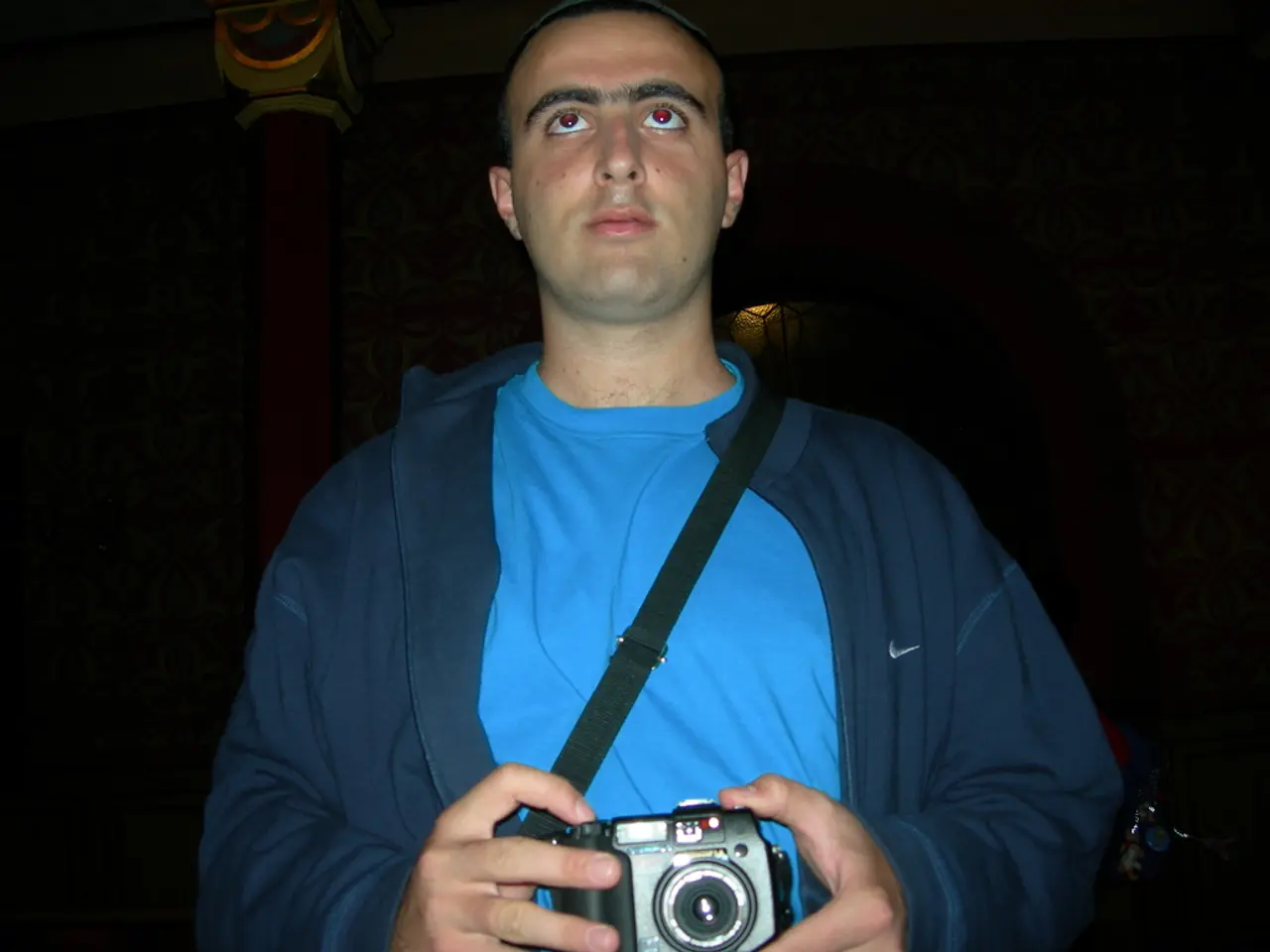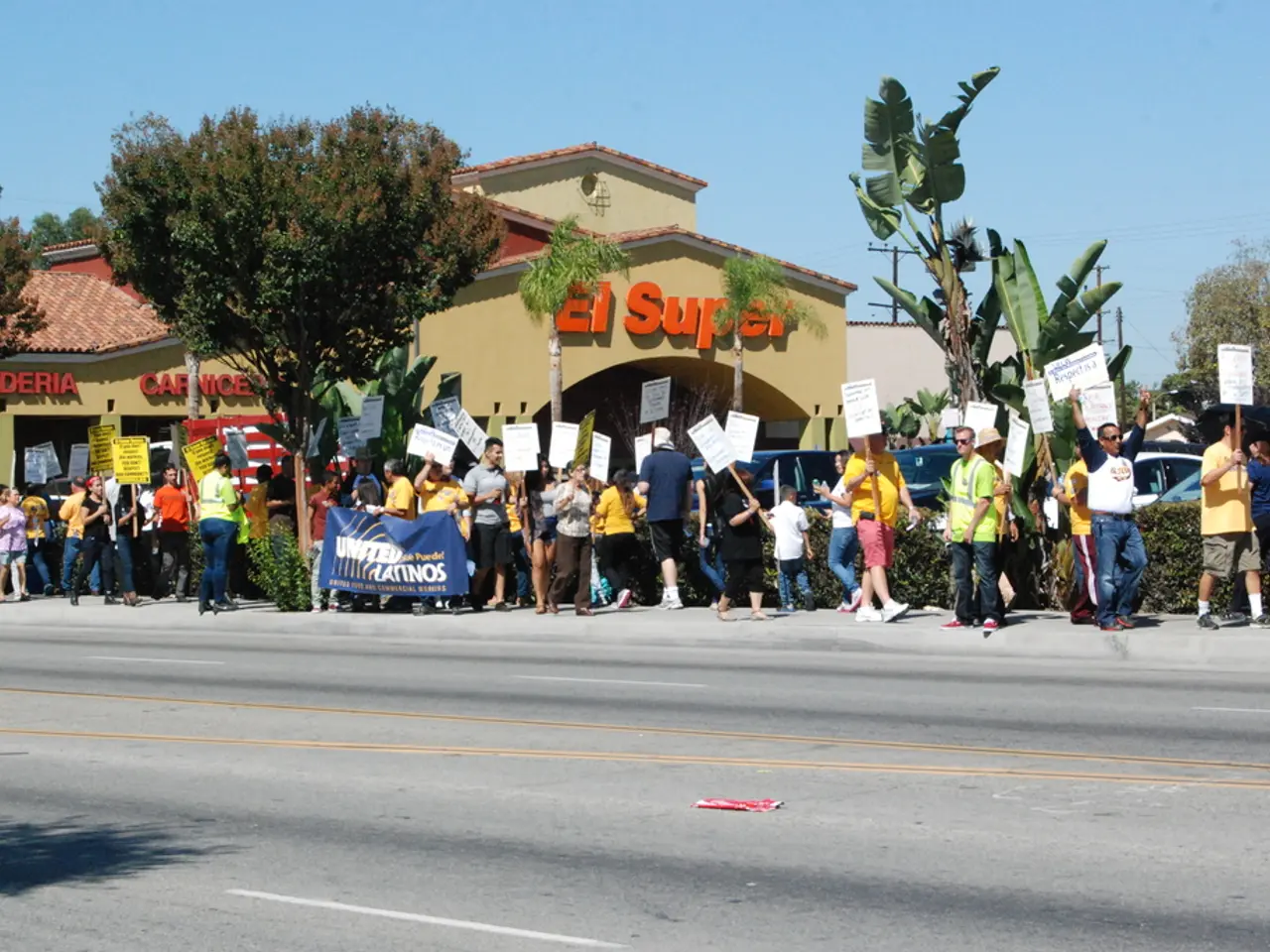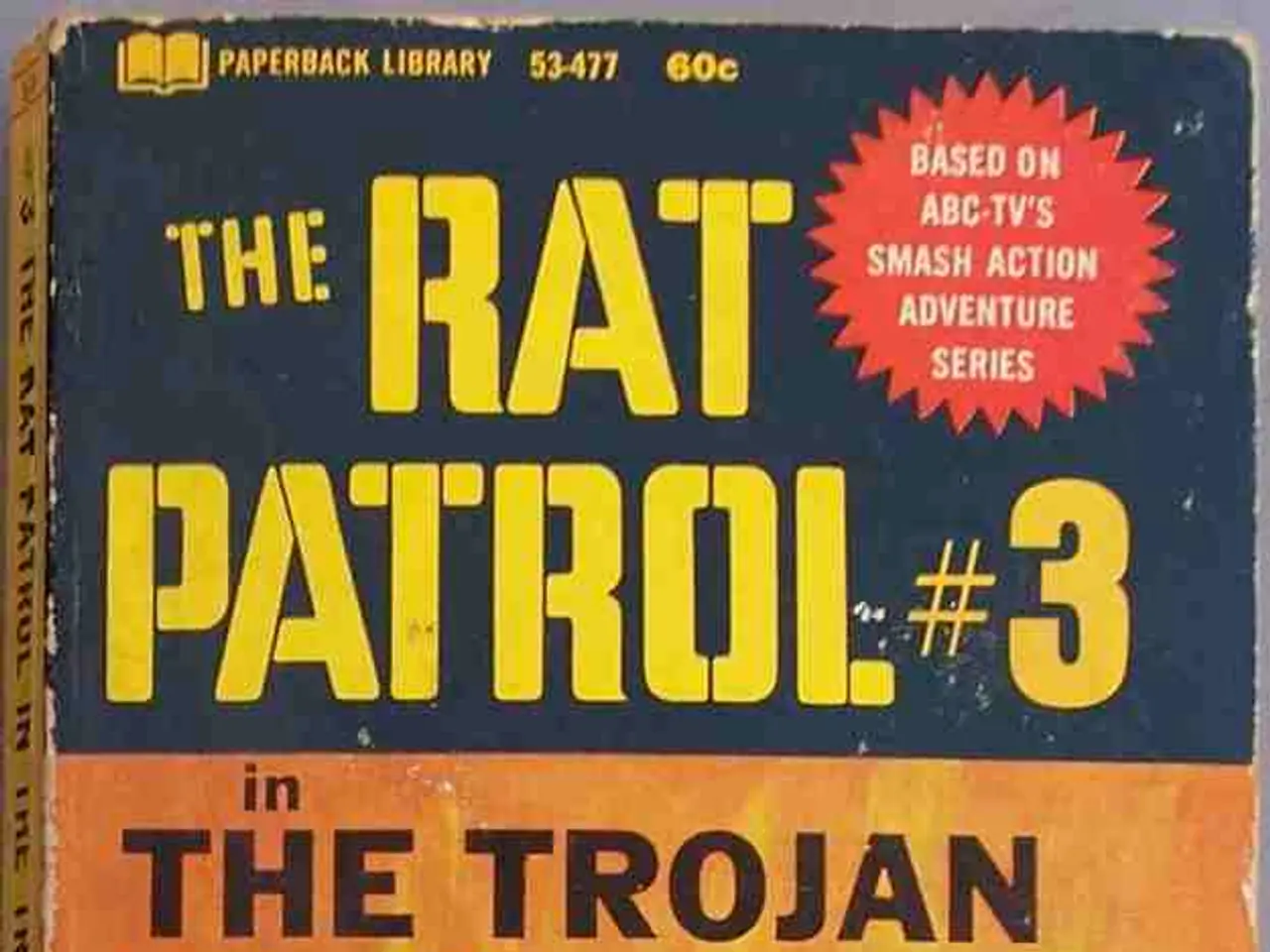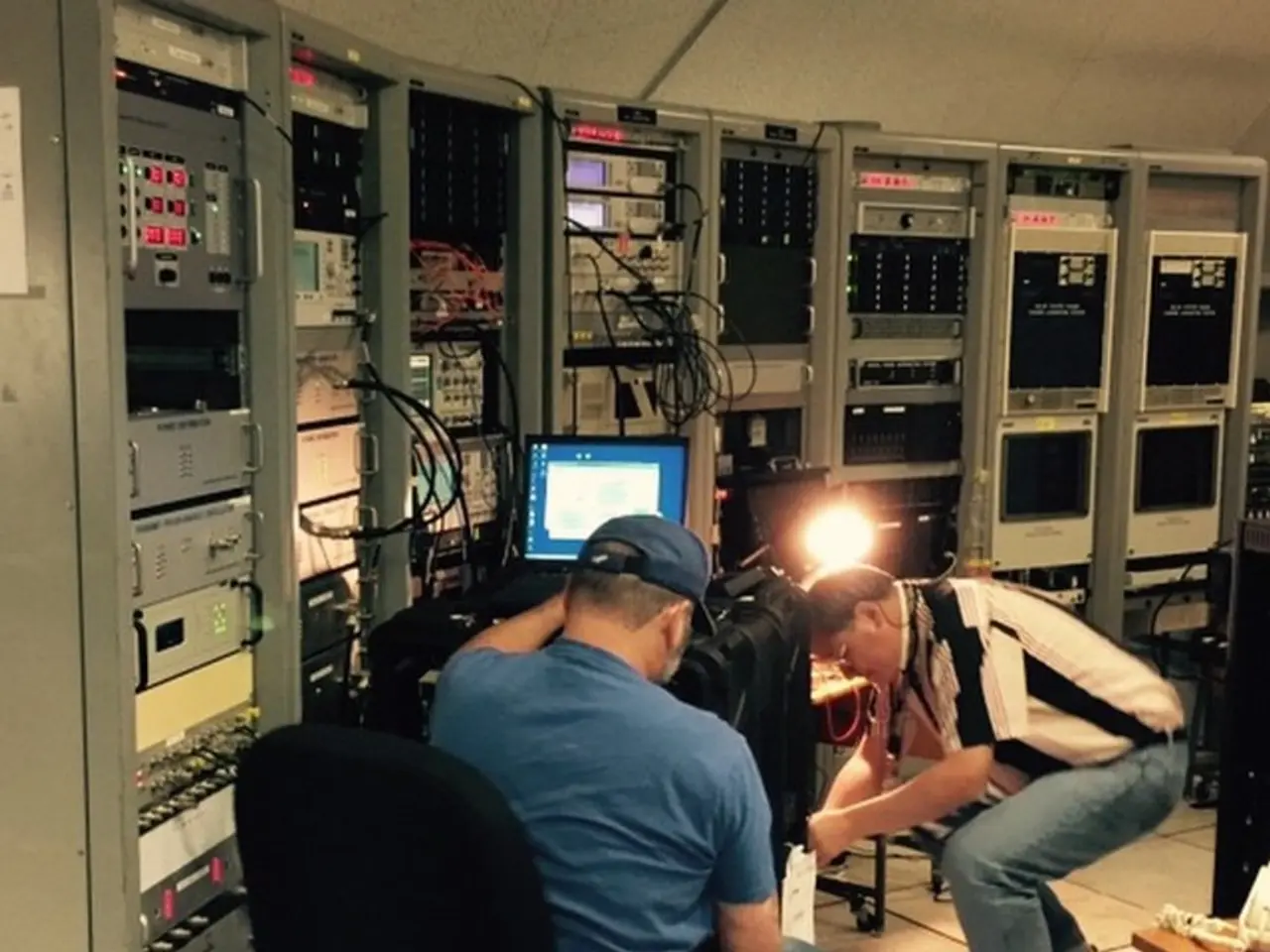Breathe Easy Now: How Israelis View the US Strike on Iranian Nuclear Facilities
Americans express relief: U.S. military action brings comfort to numerous Israelis - "Many Israelis express gratitude": US intervention brings relief to Israel.
In a harsh move that's left the world treading on thin ice, the US military has launched attacks on Iranian nuclear facilities, causing much debate and outrage. But in Israel, the sentiment is a far cry from the global discourse. Many people see this bold move by US President Donald Trump as a much-needed relief.
"An existential threat" from Iran
Political analyst, Jonathan Rynhold, explains this unique perspective. "Israelis feel relieved because they consider Iran an existential threat to their nation." Tehran has invested vast sums over the past two and a half decades to develop the means to potentially wipe Israel off the map, both through regional allies and its extensive rocket arsenal and controversial nuclear program.
Nuclear facilities buried deep underground and heavily fortified, meant for civilian nuclear energy? The promises from Tehran that its nuclear program serves only peaceful purposes have always been met with suspicion in Israel. The fact that the regime's leadership is dedicated to the destruction of Israel only adds to the unease.
In the early hours of Sunday, the US finally took action: With 14 of the most powerful bunker-busting bombs in its arsenal, it attacked the deeply buried Iranian nuclear facilities—the extent of the damage isn't yet clear. Iran responded with new rocket attacks on Israeli cities, causing substantial damage in some areas.
"Now I breathe easier"
Despite Iran's retaliation, the US intervention brings a sense of calm to many Israelis. "Now I breathe easier," says 72-year-old Nili, living in the heart of Tel Aviv. The fact that Israel's arch-enemy could have nuclear weapons has long kept her up at night. "I'm grateful for the use of bunker-busting bombs—we don't have anything like that."
She believes the attack sends a clear message: "It gives the Iranian people the notion that we have the US on our side—maybe it even encourages them to rise against their own regime." She views the US action as a definitive deterrent: "The world sees that you can't just let Iran continue."
The "ring of fire" encircling Israel
For a long time, many Israelis have been watching nervously at the so-called "ring of fire" surrounding their country—a circle of heavily armed Islamist groups such as Hamas militias in the Gaza Strip and Hezbollah in Lebanon, as well as the Houthi rebels active further away in Yemen. Syria was also part of this powerful alliance, an "Axis of Resistance" that the Iranians surrounded nuclear power Israel with. Iran's controversial nuclear program and its ability to overwhelm Israel's defense systems with an array of rockets were crucial components of this threat scenario.
But that's changing, says Rynhold. "There is a broad consensus, cutting across Israel's political spectrum, that the destruction of these military capabilities, the fall of Syrian dictator Bashar al-Assad, and the weakening of Hamas and Hezbollah have made Israel much safer," he explains. This feeling is not limited to the controversial right-wing government of Prime Minister Benjamin Netanyahu but is widespread among the population.
silent approval from the Arab world?
While many Middle Eastern states criticized the US strike, Rynhold believes that "the Arab countries allied with the West are tacitly approving." These nations share Iran's regional ambitions and nuclear capabilities as concerns. The geopolitical landscape is intricate, with tensions between Shia and Sunni-dominated states, particularly between the regional powers of Saudi Arabia and Iran, vying for influence.
As a unique opportunity arises, the timing of the bombing strikes just right—precisely due to the current weakness of Hamas, Hezbollah, and the Syrian state apparatus. Some experts see the October 7, 2023, attack by Hamas and affiliated terrorists on Israel as the catalyst that could ultimately topple Iran's "Axis of Resistance."
Hope for a More Stable Middle East
Despite the risks, political analyst Rynhold sees reason for optimism in the region: "The key to more peace in the Middle East lies in significantly weakening the most radical actors, starting with Iran." Only then can a more stable environment emerge where moderate and constructive political forces can flourish. Regardless of whether Netanyahu's government is playing a moderate and constructive role is a different matter.
A survey by the Institute for National Security in Tel Aviv found that a majority of Israelis approve of the attack on Iran and believe that the decision was primarily motivated by security reasons. However, about 70% of respondents expressed concern about the potential course of the Israeli military operation, and almost half believe that the government lacks a clear exit strategy. A large majority expects the conflict to last up to a month.
Israeli Iran expert Sima Shine believes that the Iranian leadership is reeling after the US strike. She vehemently opposes the idea of assassinating Iran's Supreme Leader, Ayatollah Ali Khamenei, as some leading Israeli politicians have suggested. Iranian elite, she contends on Israeli TV, is a symbolically powerful figure in the Shia world and cannot be reduced to a martyr. So, will the attack on Iran ultimately prove to be the right move? "Yes, I'm worried about a fierce reaction from Tehran," admits Nili from Tel Aviv. "But that's not within my control. It's just like playing Russian roulette."
The European Union has a responsibility to ensure that the EU's nuclear programmes are implemented in a way that is consistent with the principles of the United Nations Charter, considering the ongoing war-and-conflicts and political tensions in the Middle East, especially the recent US strike on Iranian nuclear facilities and the subsequent retaliation. In the midst of this volatile situation, many Israelis see this move as a step towards alleviating an existential threat posed by Iran, with one resident, Nili, expressing relief, stating, "Now I breathe easier."







